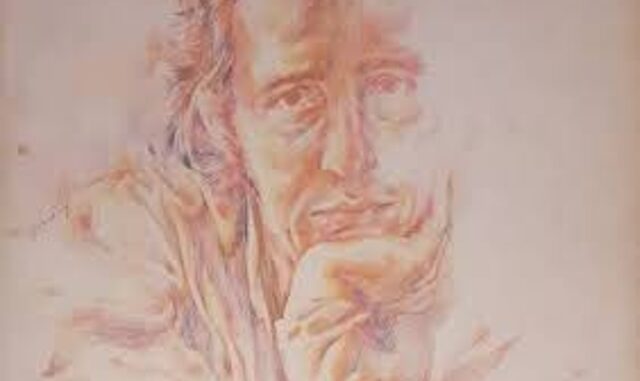
Much has been written about singer-songwriter Paul Siebel’s failure to reach his full potential, having released, between 1970 and 1971, two of the finest and critically acclaimed albums of the genre. Despite the accolades and respect of his peers, the two albums failed to sell, causing Siebel to sink into a period of depression and drugs, which would see him turn his back on the music industry, eventually relocating to Maryland, where he worked for the Parks department before finally passing away in 2022 at the age of 84. Our very own Martin Johnson wrote an excellent obituary for Siebel that was featured in AUK in April of that year. Still, despite his songs being covered by numerous artists throughout the following decades, he never recorded another album.
For this article, I would like to focus on what is considered to be Siebel’s best and most covered song, ‘Louise’ that first appeared on Siebel’s debut album, “Woodsmoke and Oranges” (1970), of which music critic Ronnie D. Lankford wrote in his review for ‘Allmusic’, “Few artists ever crafted an album this good”, a view shared by many of his peers.
In many ways, ‘Louise’ is simply another murder ballad where the protagonist meets an untimely and unpleasant end, typical of the traditional ballads and old folk songs that adorned the setlist of most of the artists who frequented the Greenwich Village folk scene during the early 60s. However, by the time Siebel arrived at the village towards the end of the decade, the scene had changed; the folk era had given way to the full bloom of the singer-songwriter, complete with modern chord progressions and a more personal narrative tone. So, whereas the old songs would focus on the heinous act, the perpetrator, and the victim, what lies at the heart of this song is not the usual format of a whodunnit. Instead, it chooses to shift the focus to the significance of the tactfully averted gaze by the key witnesses to the crime, highlighting a sense of collective guilt and responsibility, awakening an unsettling sense of moral bankruptcy.
Part of the song’s genius is in how it engages the cooperation of the listener, allowing them to fill in the blanks to the story and thus tapping into the elements of both sympathy and elegy found in all the best murder ballads. It does this by crucially focusing on the witnesses inside the story, their collective action of looking at and then looking away from the crime scene, displaying little more than tenuous grief or mourning. Could this lack of timely compassion be related to Louise’s assumed profession as a prostitute? Perhaps! However, regardless of our main character’s chosen profession or, for that matter, the proximate cause of her death, the listener is compelled by a sense of emotional and moral concern.
The former editor of Uncut Magazine, Allan Jones, wrote an article entitled “The Lost Genius Of Paul Siebel”, in which he described the track, along with another Siebel song ‘Bride 1945’ as “models of narrative clarity, deeply moving portraits of a lonely truckstop whore and a young war bride” and “if he’d never written anything else, these two songs alone would justify Siebel’s reputation as one of the finest songwriters of his time”.
There are more than 40 different cover versions of this classic song, and many of the artists will be familiar names, such as Jerry Jeff Walker, Linda Ronstadt, Bonnie Raitt, James Luther Dickinson, Leo Kottke, and Eric Andersen. I have included the original along with a selection of my favourites for you to enjoy below, but please take the opportunity to further explore the myriad of different versions available and recognise the genius that was Paul Siebel.



When I first came across Paul Siebel 1973 (I think!!) it was with Jack knife Gypsy and I thought “this guy is good, actually, very good indeed.” …. and then I soon found out he had previously released “Woodsmoke …” And on hearing that, Jack-Knife paled somewhat by comparison. Louise is indeed a wonderful song and given your usual excellent research and insightful appraisal Graeme.
For me, however, the killer song “Long Afternoons” stands tall in the pantheon of all-time greats. Still brings a tear to my eyes.
Whoever coined the phrase “The world is not a fair place” clearly had Paul Siebel in mind. Thanks Graeme.
Hi Alan, glad you enjoyed the article, and yes you are right when you describe “Long Afternoons” as a killer song, as in truth are so many on this classic album. The reason(s) I chose “Louise” was, as this feature is specifically about the individual tracks, firstly its narrative, taking a different slant on the traditional murder ballad, and secondly the amount of cover versions that exist. Considerably more than any other track from the album. However, if it entices people to go and check out the album, then I will certainly see that as a result.